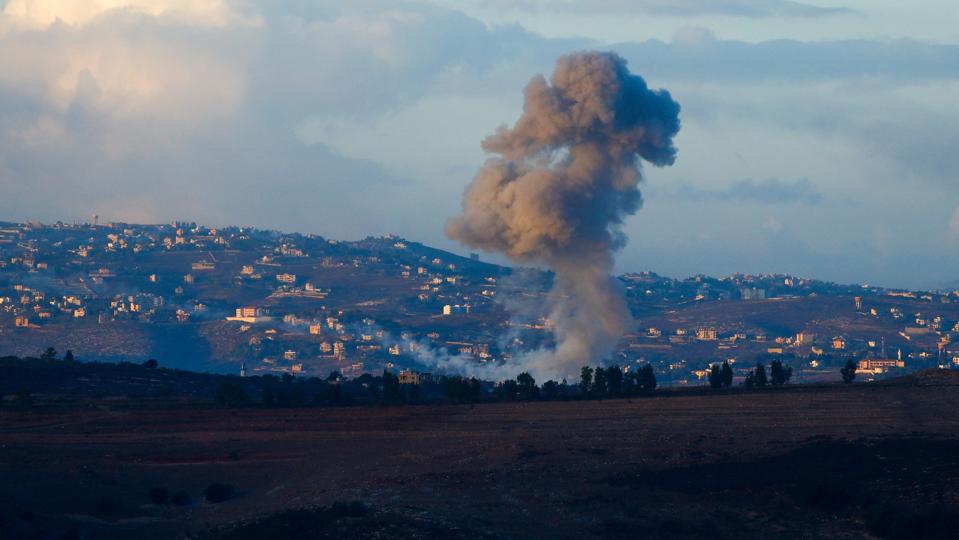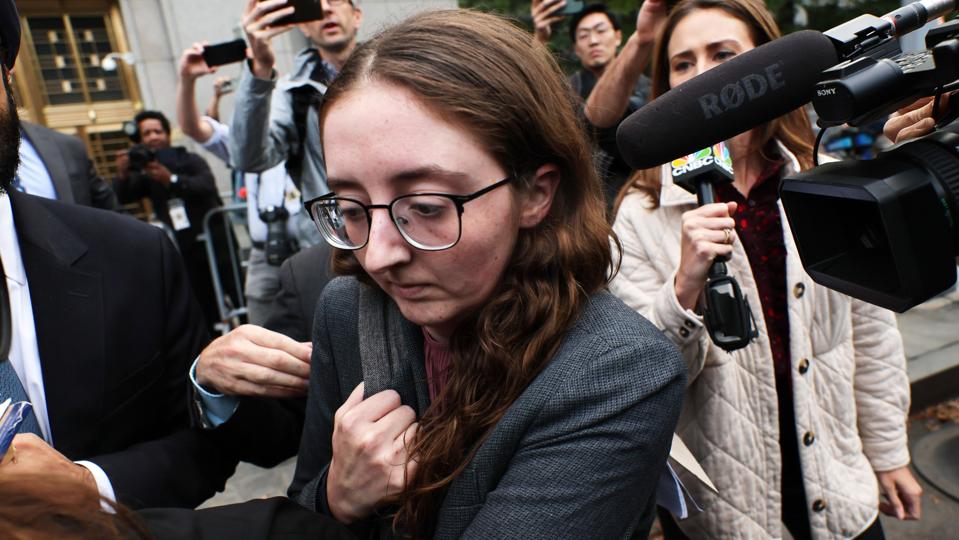The Israeli military said Monday it completed a series of strikes targeting Hezbollah in Lebanon, reportedly killing hundreds of people and injuring more than 1,000, marking the deadliest day of Israeli attacks in the country in more than a decade—extending a months-long exchange of fire between the militant group and Israel.

Smoke billows from the site of an Israeli airstrike in Adshit, near the Lebanon-Israel border.
AFP via Getty Images
Key Takeaways
- The Israeli Defense Forces claimed it struck more than 600 targets affiliated with Hezbollah in Lebanon since Monday morning, including what it called another “targeted strike” in Beirut.
- Firess Abiad, Lebanon’s health minister, said at least 274 people have been killed from Israeli strikes Monday, with more than 1,000 injured, the Associated Press reported.
- The IDF accused Hezbollah of “indiscriminately” attacking civilians in northern Israel, resulting in the Israeli military “operating against” the militant group.
- Maj. Gen. Patrick Ryder reportedly said the U.S. will send a “small number” of military personnel to the Middle East to “augment our forces that are already in the region,” saying the decision was “out of an abundance of caution,” though he declined to specify their purpose.
- Earlier on Monday, Daniel Hagari, spokesperson for the IDF, issued an “advanced warning” urging civilians from Lebanese villages in eastern Lebanon “located in and next to buildings and areas used by Hezbollah for military purposes … to immediately move out of harm’s way for their own safety.”
- According to the New York Times, the IDF also published a map highlighting 19 villages and towns in southern Lebanon, but did not say whether all of them would be targeted or needed to be evacuated; Hagari indicated there will likely be more targets in eastern Lebanon.
- While Israel has issued multiple evacuation orders for civilians in Gaza amid its war against Hamas in the past year, this is the first time it has done so for Lebanese civilians—potentially signaling a more intense aerial campaign.
- Hagari told reporters the Israeli military is currently focused on the “aerial campaign only,” but did not explicitly rule out a ground invasion, saying “we will do whatever is needed.”
Surprising Fact
Monday’s death toll is the largest since at least 2006, when Israel and Hezbollah last engaged in a military conflict that killed more than 1,000 Lebanese, the Times reported.
Crucial Quote
Ravina Shamdasani, a spokesperson for the UN’s human rights office, told Agence France-Presse the UN was “extremely concerned, deeply worried about the escalation in Lebanon.” In a statement on X, Israeli Defense Minister Yoav Gallant said he spoke with U.S. Defense Secretary Lloyd Austin on Sunday evening and provided him with a “situation assessment of Hezbollah threats and briefed him on IDF operations to degrade Hezbollah’s ability to launch attacks against Israeli civilians. We also discussed the wider regional situation and the threats posed by Iran and its proxies.”
Key Background
Monday’s airstrikes come a day after Hezbollah fired more than 100 rockets into Northern Israel on Sunday. On Friday and Saturday, Israel conducted multiple air strikes targeting the militant group’s leadership in Lebanon, including senior Hezbollah member Ibrahim Aqil—who the U.S. accused of killing hundreds of Americans in two terror attacks in the 1980s.
Earlier in the week, hundreds of pagers used by Hezbollah members exploded simultaneously across Lebanon and parts of Syria, killing at least a dozen people and injuring more than 2,750. Lebanese officials blamed the attacks on Israel—who hasn’t publicly accepted responsibility—while Hezbollah leaders vowed to retaliate against the Jewish state. Israeli Prime Minister Benjamin Netanyahu has said his government will do whatever is necessary to return residents from northern Israeli cities—who were forced to flee their homes in the areas amid an escalation along the border with Lebanon—back to their homes safely.
What To Watch For
The intensifying military exchanges between Israel and Hezbollah have raised fears that the situation could escalate into an all-out conflict between the two, even as Israel’s war in Gaza is set to enter its second year. On Sunday, White House National Security Council spokesperson John Kirby told ABC News that the White House was doing “everything we can to try to prevent this from becoming an all-out war there with Hezbollah across that Lebanese border.”


